International Society for Biosafety Research
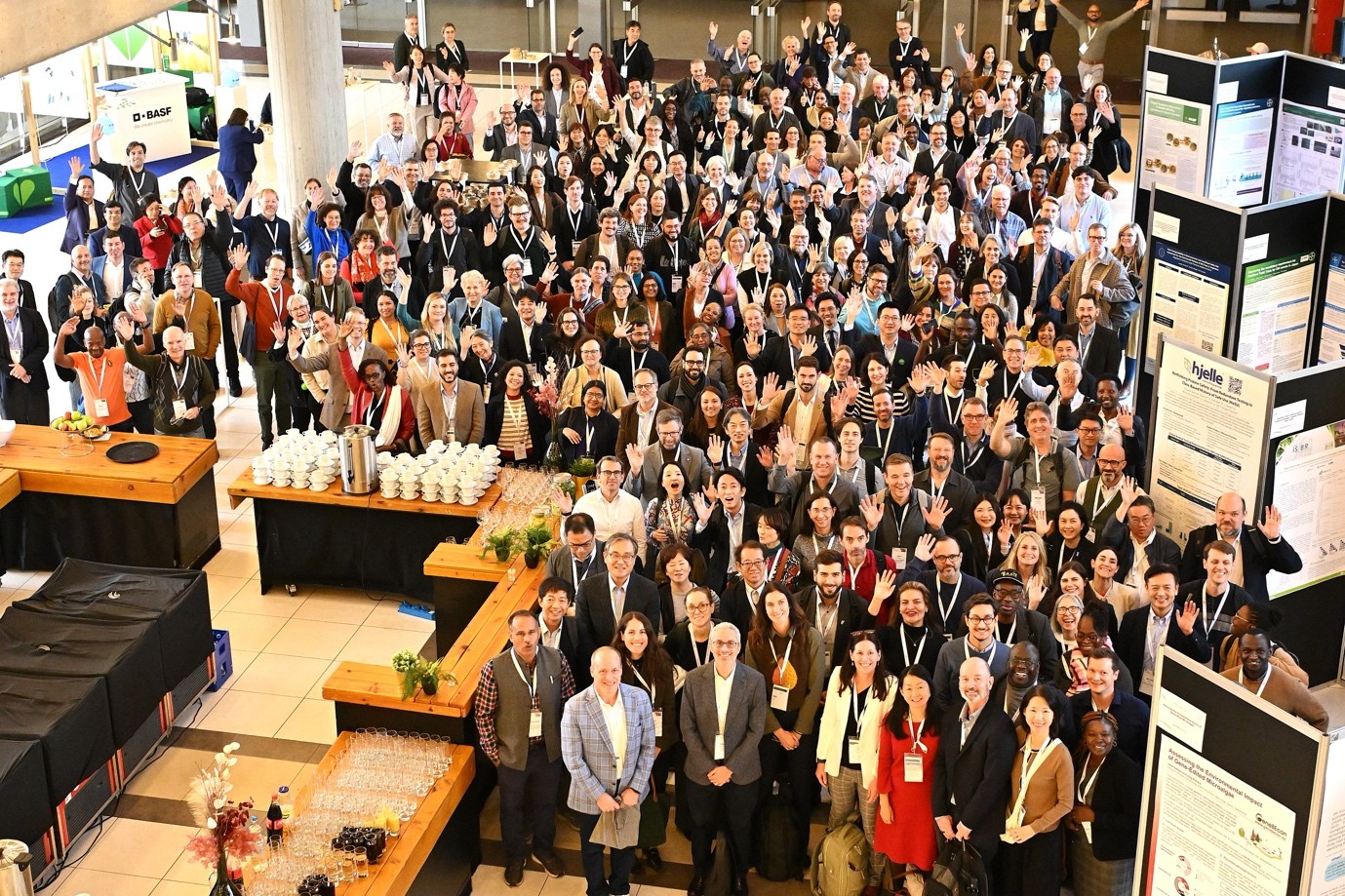
More than 300 delegates from 40 countries gathered in Ghent, Belgium for the 17th of the International Society for Biosafety Research from November 2-6, 2025.
The conference is held every two years to feature scientific exchange between global experts on biotechnology, biosafety and bio-innovation. The programme featured plenary, parallel, workshop and poster sessions.
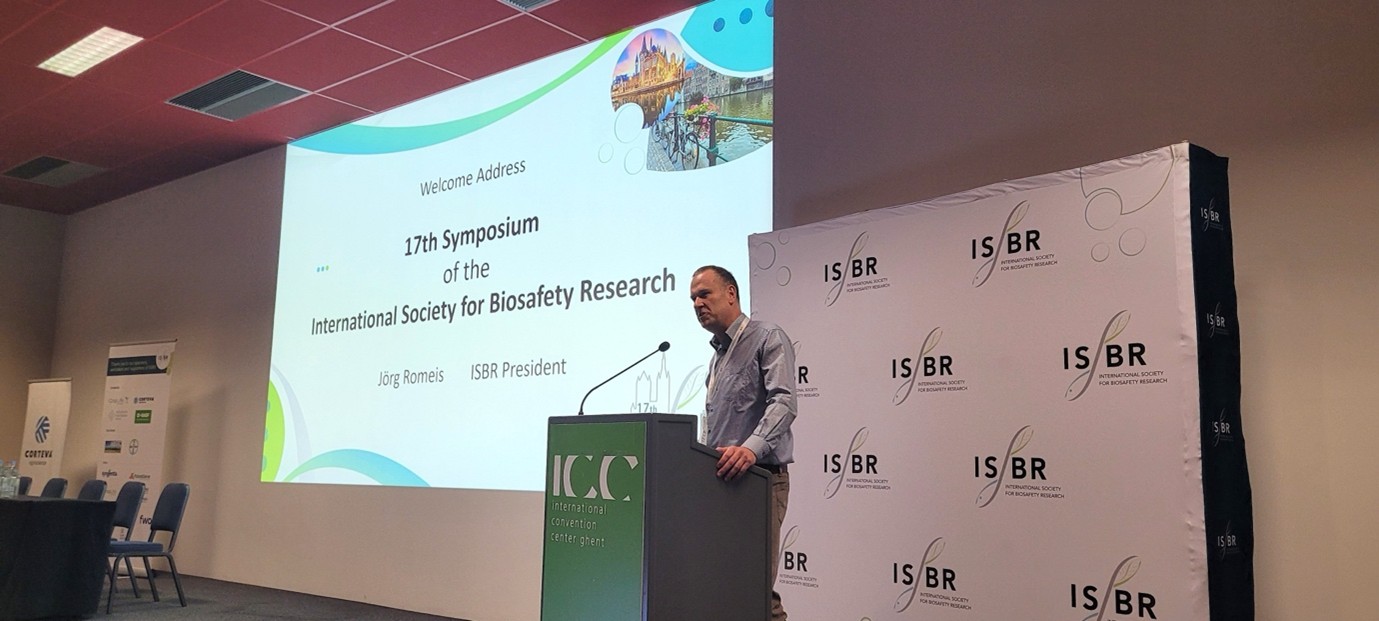
President of the International Society for Biosafety Research Jörg Romeis, setting the tone for an inspiring week of science, biotechnology, and innovation.
Dr. Stephen Runo from Kenyatta University kicked off his plenary presentation by asking the question: “Can Genome Editing Drive Food Security in Africa?
This session highlighted on-going research on genome editing to build Striga resistance on sorghum. The technology can also be applied to end the weeds in rice.
Striga is a weed that produces thousands of seeds.
The technology works through sequencing the striga weed genomes to help understand the resistance to be deployed.
Dr. Runo noted that the era of misinformation needs to be nipped in the bud to allow the public to have faith in upcoming technologies.
“Genetic editing coming in the wave of misinformation, can be controlled. Have engagements early in the day with key stakeholders. Give them the right information so that they share the right information”
The Scicom session in partnership with the Gene Convene Initiative, tackled the topic: “Communicating the Science of GMOs and Emerging Biotechnology Tools.”
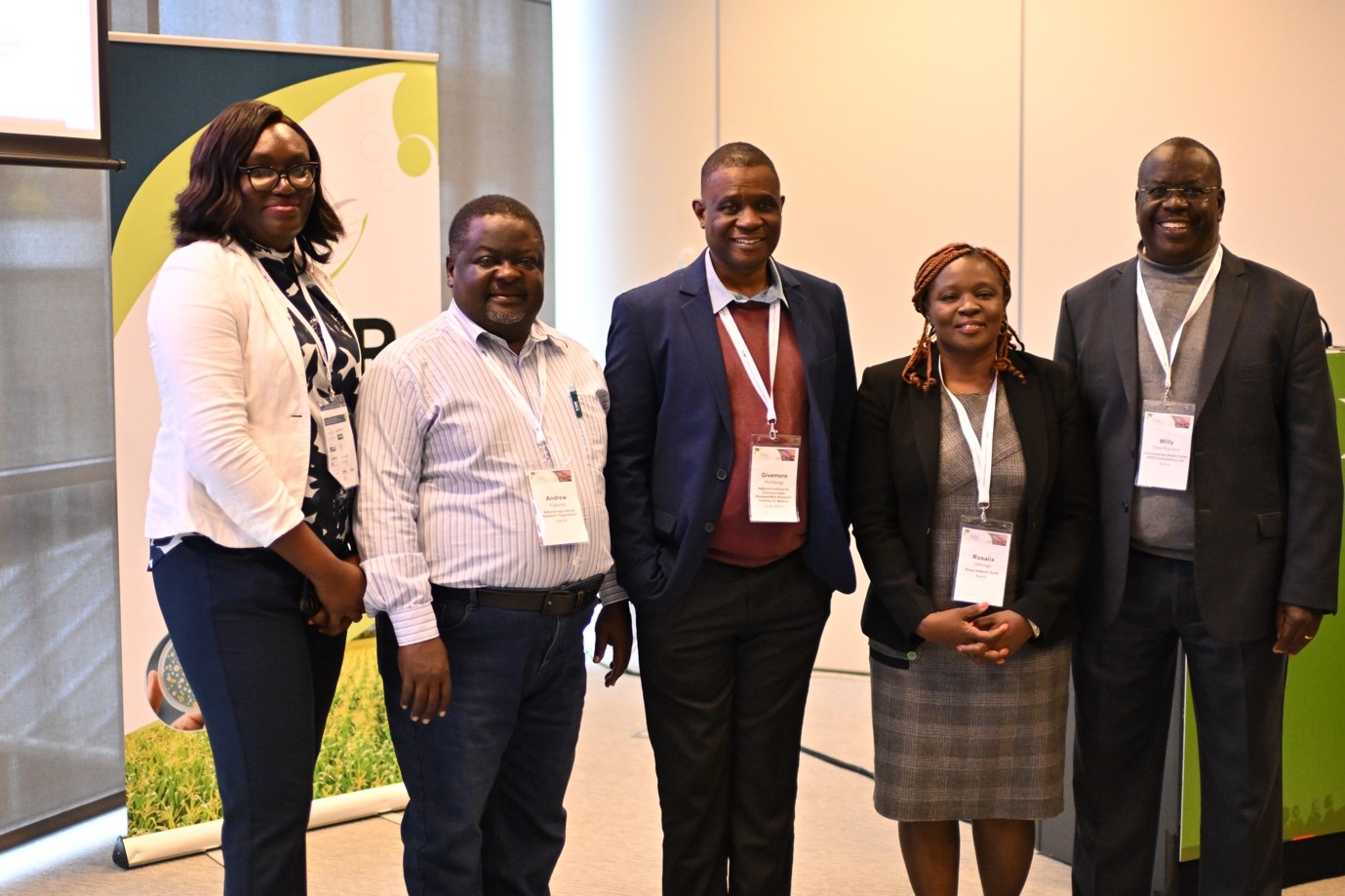
The presenters included Dr. Gloria Ogbaki, Dr. Andrew Kiggundu, Dr. Givemore Munhenga, Dr. Philbert Nyinnondi, Rosalia Omungo and Dr. Willy Tonui.
The Scicom session was chaired Dr. Willy Tonui, founder of the African Genetic Biocontrol Consortium.
Presenters tackled issues related to Genetic Biocontrol as follows: Dr. Andrew Kiggundu presented case studies for communicating about GMOs while Dr. Givemore Munhenga presented a case study of culturally relevant methods to communicate science- the Makandi experience (South Africa) resonated well with the participants, where the use of local music was used top educate locals on GMOs. Dr. Philbert Nyinondi’s presentation on the role of media in communicating Science, Technology and Innovation highlighted the need for trust. He made the case for media as a co-governing actor that shapes which innovations become acceptable, suspicious, empowering or dangerous.
In the coming decade, gene editing genetic biocontrol, digital breeding and platforms and climate resilient crops will move beyond research to deployment.
Dr. Gloria Ogbaki presented on communication related to regulatory decision making, while Rosalia Omungo highlighted the Science Communication Forum, in which scientists and journalists are working together for the common good and to elevate standards of reportage on biosafety and emerging biotechnologies.
Scicom was officially commissioned during the 1st Global Congress on Emerging Genetic Biocontrol Technologies held on August 28—31, 2023 in Nairobi.
The initiative was launched as a response to GMO 101 Course for journalists and science communicators, that was held between February 1-3, 2023, in Nairobi. During the course, both scientists and journalists expressed a commitment to work towards continuous engagement and partnership as well as common approaches that provide better understanding on Genetically Modified Organisms.
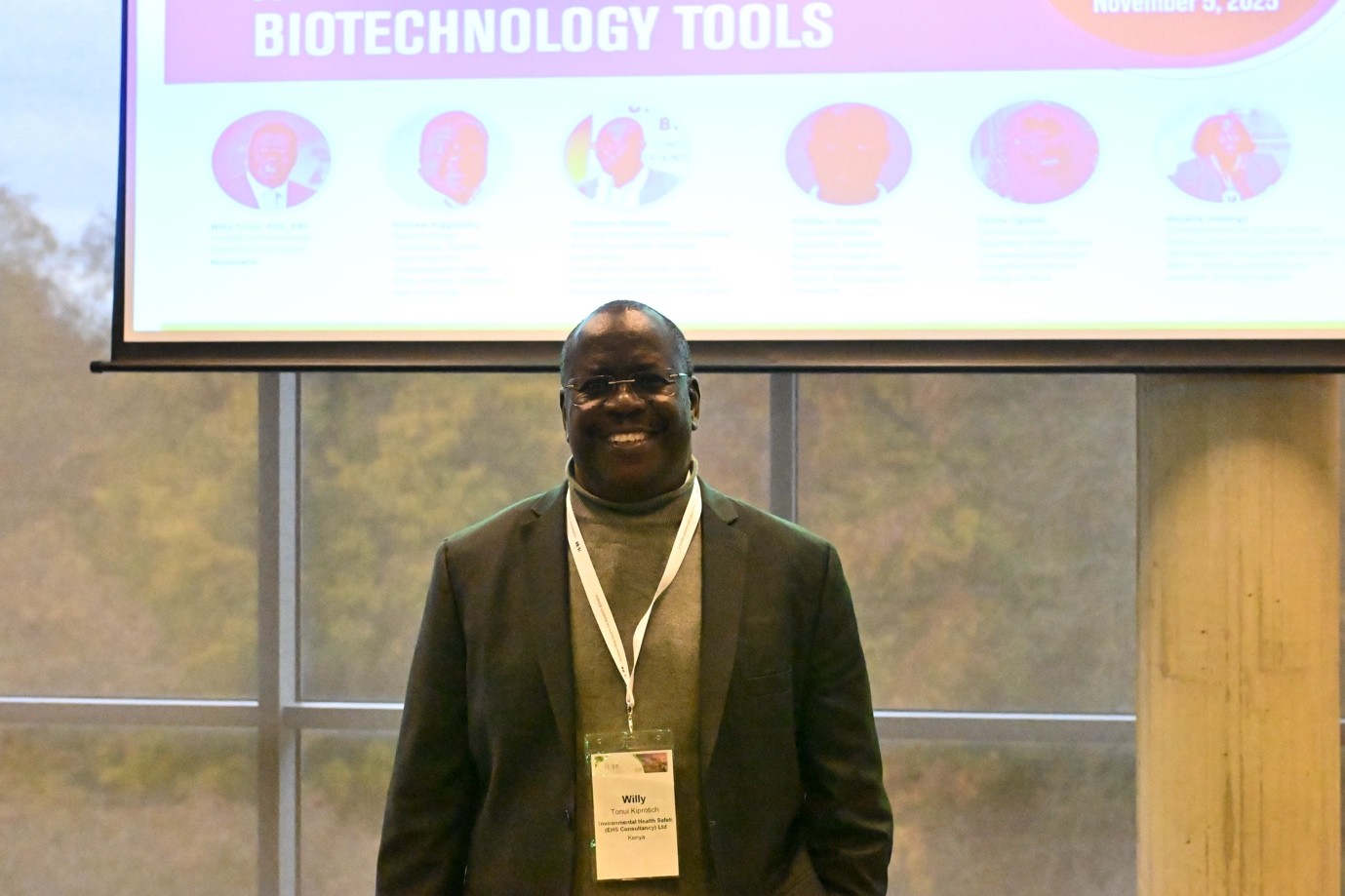
The session was chaired by Dr. Willy Tonui founder of the African Genetic Biocontrol Consortium.
Below: Hennie Groenewald- Biosafety South Africa- during the closing plenary.
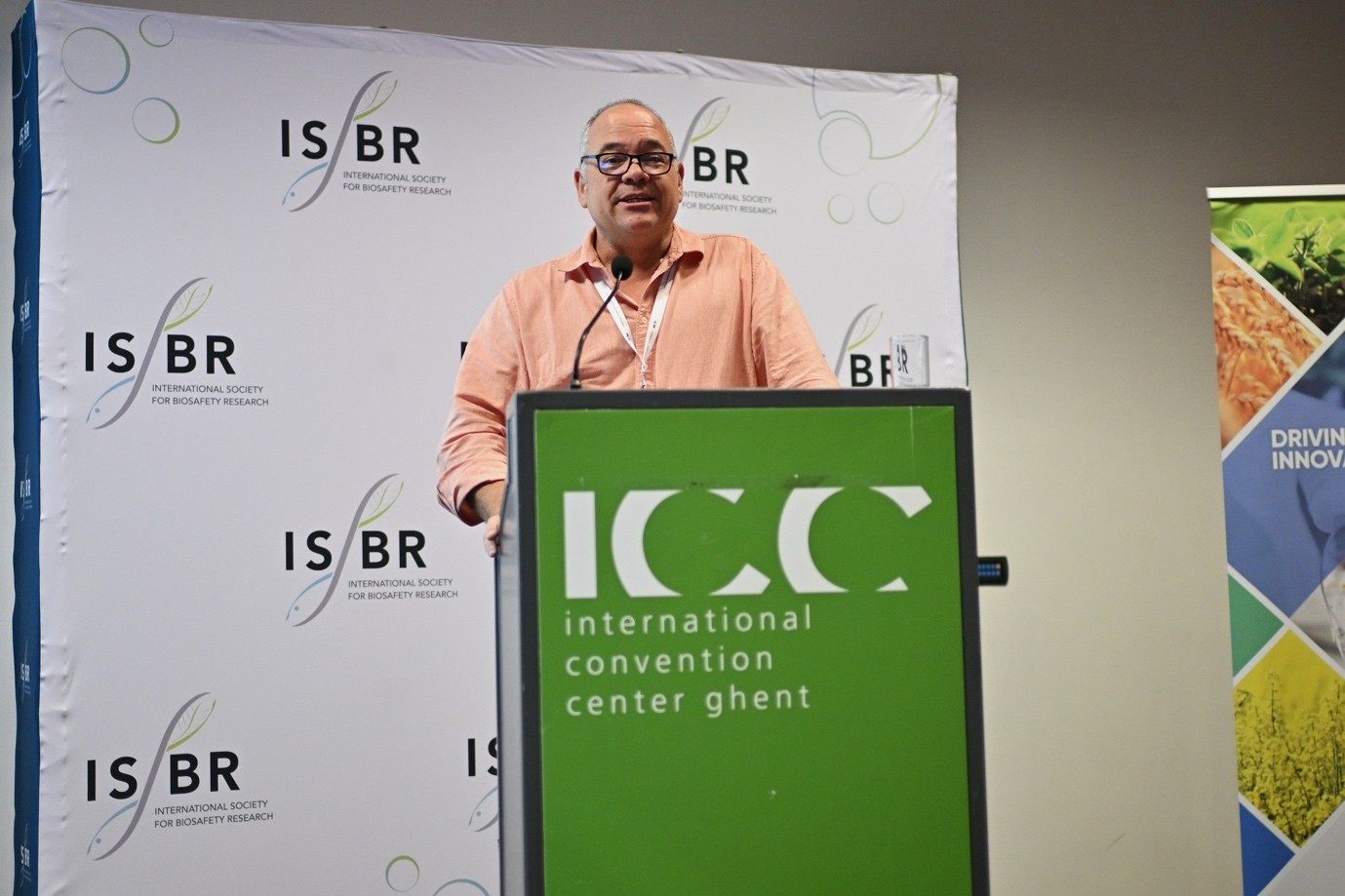
Delegates later had a chance for field visits to discover state -of -the- art laboratories and. Greenhouse facilities.
The 18th ISBR Symposium will be held in Bali, Indonesia in 2027.
